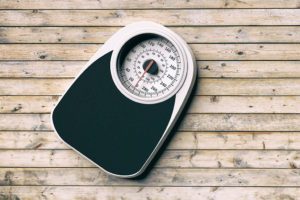
For millions of Americans, it’s a familiar and depressing phenomenon.
After struggling to shake off 5 to 10 pounds on the latest diet, it all comes back—plus a few extra for good measure.
New research confirms this yo-yo effect, which plagues about 80 percent of all dieters, leads to a higher risk of death.
Interestingly, the study, which tracked some 3,600 adults over a 16-year period, found that people with a history of weight cycling had a lower risk of developing diabetes.
The odds of successfully losing weight get more dismal the heavier a person is, with one major study finding it’s virtually impossible for obese people to diet their way back to a normal weight.
For men, the odds of successfully losing weight under those circumstances are 1 in 210; for women, 1 in 124.
For those considered morbidly obese, it’s even worse.
About 40 percent of American adults—or 93 million people—are considered obese, characterized by a Body Mass Index of 30 or more. Those with a BMI of 40 or higher are considered morbidly obese. (Online calculators can help you determine your BMI.)
People who lose weight will typically see it return because dieting alters our metabolism, said James Foote, MD, a bariatric surgeon with Spectrum Health Medical Group.
Once a person loses weight, the body will reduce the amount of energy it expends, while increasing hunger. The worst part, Dr. Foote said, is that those who are overweight blame themselves.
“People don’t understand that obesity is a disease,” Dr. Foote said. “We catch it from our environment, from processed foods, chemicals … even antibiotics taken throughout our lives have affected our gastrointestinal system.
“It’s not their fault,” he said. “They’re often very ashamed—they think they didn’t exercise enough, or that they don’t have enough willpower.”
Battling obesity
Dr. Foote, 49, speaks from experience.
He watched his own weight tick up over the years, along with his cholesterol and blood pressure. His knees ached when he exercised. Despite his best efforts to eat less and move more, the pounds kept coming.
“Even though I was living it every day and knew how to eat healthy, the volume of food that I was eating was just too much,” he said.
About 18 months ago he underwent bariatric surgery, which involved a procedure known as sleeve gastrectomy. He has since lost 70 pounds.
He is now exercising without pain, enjoying his running and yoga sessions.
“I’m back to my high school weight and my other medical issues have more or less gone away,” he said.
Along with wishing people could shake off the shame and self-loathing that comes from being overweight or obese, he also hopes they’ll become more open-minded about surgery.
While many still think of surgery as a treatment of last resort, you don’t need to be 200 pounds overweight to have these procedures, Dr. Foote said.
“Often, just being 70 or so pounds overweight is enough,” he said.
This typically means an average-sized woman of about 200 pounds or a man of about 240 pounds would qualify.
For those with a BMI between 25 to 30—overweight, but not obese—there are intragastric balloons. These saline-filled balloons, which are removed after six months, cost about $7,000 to $10,000 and are not covered by insurance.
Of course, surgery isn’t the only option.
Even if losing weight is out of reach, trying not to gain any more weight is a worthy goal.
“It’s really about more healthy eating,” Dr. Foote said.
Cutting down on processed foods and sugar, especially carbonated beverages, is of supreme importance. Even if it doesn’t result in weight loss, it boosts your health in other ways.
Dr. Foote is hopeful expert opinion is shifting in ways that will broaden the availability of surgery, helping patients before their obesity becomes severe.
While most insurance typically covers the cost of surgery only for the morbidly obese, more experts would like it to be available for those with a BMI of 30 or more, particularly if they have other health problems such as diabetes, heart disease or arthritis.
“Some of these patients are only going to be 50 pounds overweight, but they really should be considering surgery,” Dr. Foote said. “Now we just have to convince insurance companies.”
 /a>
/a>
 /a>
/a>
 /a>
/a>
would I qualifier for this procedure. I have had quadruple bypass, 2 back surgeries. I can’t exercise because of so much back pain. I am morbidly obese. what steps can I take to lose weight
Hi Richard, Thank you for being a reader, and for taking the next step along your path to health and wellness. We recommend you call 616.267.7400 to learn more about Spectrum Health Bariatrics and make an appointment for a personalized assessment. Best wishes to you!
Thank you Dr. Foote, you did my sleeve gastrectomy in 2016 and I couldn’t be happier. It has been a great help!
This is fantastic! Glad you’re doing so well, Susan. 🙂